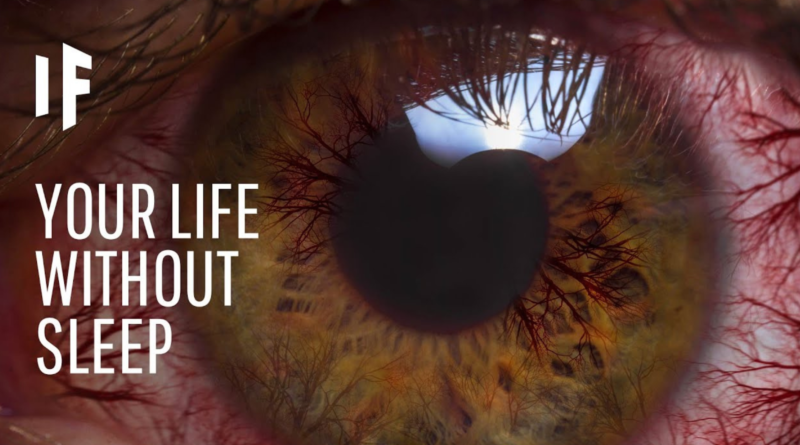WHAT IF HUMANS STOPPED SLEEPING FOREVER?
Sleep is something every human being does, no matter where they live, how rich or poor they are, or what culture they belong to. We spend almost one-third of our lives sleeping. For centuries, scientists have tried to understand why sleep is so important. But imagine a strange world where humans never needed to sleep. What would happen to our bodies, our minds, and our daily lives? Would it be a blessing or a curse? Let’s explore this idea step by step.
More Hours in a Day
If humans never slept, we would suddenly gain about 7 to 8 extra hours every day. Right now, people usually work, study, or enjoy life for 16 hours, then sleep for the rest. Without sleep, our days would feel twice as long. People could work longer, travel more, or spend extra time with friends and family. Some might even learn new skills or start second jobs. In theory, society would become much more productive.
The End of Bedtime
Imagine bedrooms without beds, pillows, or blankets. Companies making mattresses and sleeping pills would go out of business. Hospitals would no longer need sleep labs. Airlines wouldn’t need to offer reclining seats. Children wouldn’t have bedtime arguments with parents. Night and day would look the same in human activity—people could shop at midnight or visit the doctor at 3 a.m. The whole idea of a “day” and “night” lifestyle would disappear.
Impact on the Human Body
However, sleep is not just wasted time. Our bodies use sleep to repair cells, strengthen the immune system, and balance hormones. Without sleep, humans would face many health problems. Right now, even a few nights without rest can cause memory loss, poor judgment, mood swings, and a weak immune system. If we truly stopped sleeping forever, scientists believe our bodies would age faster, our brains would lose focus, and diseases would spread more easily.
For example, sleep helps our brain clean out toxins and store memories. Without this, people would become forgetful, confused, or even mentally unstable. We might see higher rates of depression, anxiety, or hallucinations. Physically, people might suffer from heart problems, obesity, or constant fatigue. So, unless humans somehow evolved new biology, the body would not survive long without sleep.
Changing Work and Economy
If humans somehow became healthy without sleep, the global economy would change completely. Factories could run 24 hours with workers always available. Shops, schools, and offices would stay open all the time. There would be no “night shift” or “day shift” because everyone could work whenever they wanted. Productivity might increase, but it could also create pressure. Employers might expect people to work longer hours since nobody has the excuse of needing rest. This could lead to overwork, stress, and burnout, even if sleep was no longer required.
Social and Cultural Changes
Cultural traditions would also shift. Think about bedtime stories, lullabies, or festivals like “New Year’s Eve” where people stay awake late-it would lose meaning. Nightlife, such as clubs and cinemas, would not be special anymore because every hour would be active. Time zones and business hours would become less important since everyone would be awake at the same time across the world.
Families would also spend more time together, but that could be good or bad. More hours with loved ones might strengthen bonds, but it might also cause more conflicts because people would never get a break from each other.
Nature and the Environment
Animals and plants depend on natural cycles of day and night. Humans, however, would break this balance if they stayed awake all the time. Cities would glow with lights 24 hours a day, wasting more electricity and disturbing animals that depend on darkness, such as bats, owls, and fireflies. More human activity would also mean more pollution, more noise, and more pressure on natural resources.
Technology and Entertainment
Without sleep, entertainment industries would explode. People would spend endless hours watching movies, playing games, or scrolling through social media. Technology companies would try to fill every extra hour with apps and digital content. But this could also mean more addiction to screens, less physical activity, and weaker human connections.
Psychological Effects
Even if sleep were not necessary, the human mind might still struggle. Right now, dreams are part of sleep, and they help us process emotions and memories. If dreams disappeared, people might lose creativity or emotional balance. Artists, writers, and inventors often get ideas from dreams. Without them, human imagination might become weaker. On the other hand, people would have more waking time to create and think, so creativity might take new forms.
A World That Never Rests
Imagine a city that never sleeps-bright lights, busy streets, and constant movement. Now imagine the whole world like that. At first, it sounds exciting, but after some time, it might feel exhausting. Humans are not machines. Even if we no longer required sleep, we would probably need some form of rest-quiet time, meditation, or simply sitting still. Without moments of pause, life could become overwhelming.
Conclusion
If humans stopped sleeping forever, the world would change beyond recognition. We would gain more hours, more productivity, and perhaps new inventions. But we would also lose the natural balance of body, mind, and society. Sleep is not just a break it is a vital part of being human. Without it, life might feel longer, but it would also be emptier and more stressful. In the end, sleep may look like lost time, but it is actually one of nature’s smartest gifts to us.




